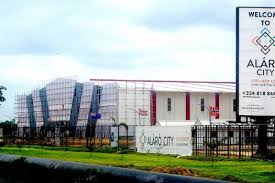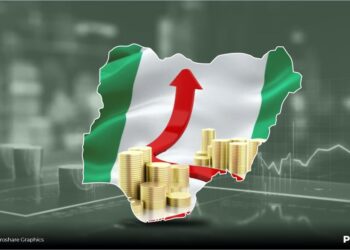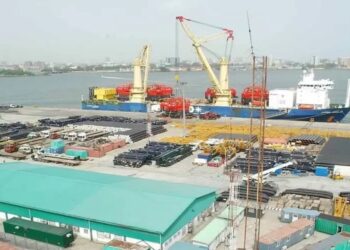There can be no gainsaying the fact that the Apapa and Tin Can Ports have outlived their capacities to meet the import and export demands of the Nigerian economy.
Hence, there was the need for a Lekki Deep Sea port to fill that vacuum.
For example, whereas the old ports were built to accommodate circa 4,000 TEU each, which cannot harbor large ships, the Lekki Deep Sea Port was built to harbor super container ships as it was designed for 18,000 TEUs, which is oiling the Nigerian economy by reducing demurrage and downtimes.
By that astute innovation on the part of the government, there is the need for the private sector to key in to derive the maximum benefit and transform the Lagos Island economy into a world class hub, as that half of Lagos boasts of the largest refinery in Africa, a deep sea port, and an airport under construction.
There come the incentives of a free zone area. The Alaro City project is one that has the potential to feed the intentions of that free zone area.
Nestled within the Lekki Free Zone in Lagos State, Alaro City is rapidly emerging as a symbol of economic transformation and opportunity in Nigeria. As a strategically designed mixed-use city, Alaro City is harnessing the benefits of its free zone status to drive significant economic growth, attract foreign investment, and create a dynamic environment for businesses and residents alike.
One of the most compelling benefits of Alaro City is its ability to attract substantial foreign investment. By offering a range of incentives, including tax breaks, duty exemptions, and simplified customs procedures, Alaro City provides a conducive environment for international businesses.
These incentives reduce operational costs and enhance profitability, making Alaro City a preferred destination for multinational companies looking to establish a foothold in West Africa.
The influx of businesses into Alaro City translates directly into job creation for the local population. As companies set up their operations, they require a diverse workforce, creating thousands of employment opportunities across various sectors. This job creation extends beyond direct employment, as ancillary services and industries also benefit from the increased economic activity, leading to a ripple effect throughout the local economy.
Alaro City is designed with an export-oriented focus, positioning it as a hub for manufacturing and logistics. Companies operating within the city can take advantage of its strategic location and efficient logistics infrastructure to access global markets. This focus on exports not only contributes to Nigeria’s overall export levels but also enhances the country’s trade balance and foreign exchange reserves.
The development of Alaro City has brought about significant investments in infrastructure, transforming the landscape and improving the overall business environment. State-of-the-art facilities, well-planned road networks, and reliable utilities are some of the infrastructure highlights that make Alaro City an attractive destination for businesses.
This infrastructure development extends beyond the city itself, contributing to the modernization of the broader region.
Alaro City plays a crucial role in Nigeria’s economic diversification efforts. By attracting a variety of industries, from manufacturing and logistics to technology and real estate, the city reduces the country’s reliance on oil revenues. This diversification enhances economic resilience, making Nigeria less vulnerable to global oil price fluctuations and other external shocks.
The presence of multinational companies within Alaro City facilitates the transfer of technology and skills to the local workforce. Employees gain exposure to international best practices, advanced technologies, and innovative processes. This knowledge transfer is instrumental in building a highly skilled workforce, which can drive further innovation and economic development in Nigeria.
While businesses in Alaro City enjoy various tax incentives, the government still benefits from the increased economic activity. Fees, permits, and indirect taxes generated by the bustling business environment contribute to government revenue.
Moreover, the overall economic growth spurred by Alaro City’s success boosts national GDP and strengthens the economy.
By providing a world-class business environment, Alaro City enhances the competitiveness of Nigerian industries. Local companies operating within the city are exposed to international standards and practices, driving them to improve their efficiency and quality. This exposure helps elevate the standards of Nigerian products and services, making them more competitive in the global market.
Alaro City is not just an economic powerhouse; it is also a model for sustainable urban development. The city’s master plan incorporates green spaces, efficient waste management systems, and sustainable building practices. This focus on sustainability ensures that Alaro City’s growth is environmentally responsible and sets a benchmark for future developments in Nigeria.
Alaro City exemplifies the myriad economic benefits that a free zone area can bring. By attracting foreign investment, creating jobs, boosting exports, developing infrastructure, and fostering economic diversification, Alaro City is driving Nigeria’s economic transformation. As it continues to grow and evolve, Alaro City stands as a beacon of opportunity, innovation, and sustainable development in West Africa.
Ojo, a public affairs analyst wrote from Lagos





